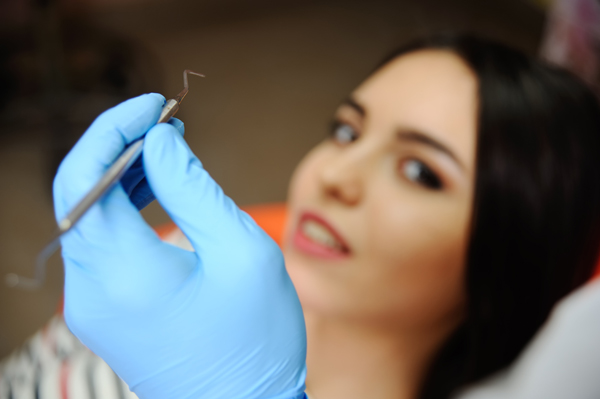How Often Should You Get a Dental Cleaning?

Regular dental cleaning maintains or improves your oral health. For example, dentists include routine deep cleaning in long-term treatment plans for patients who live with gum disease. Dental cleaning is also important for smokers who have otherwise healthy teeth. This piece goes over the routine for dental cleaning.
What to expect from routine dental cleaning
Dental practices prefer to offer first-line treatment rather than complex dental procedures. This requires a patient to have a fairly healthy mouth. Complex dental procedures only come into play for patients with severe dental issues. Dentists prefer that their patients never get to this point.
The main part of first-line dental care is preventative, which is where deep cleaning the teeth comes in. Here is what happens during a routine dental check:
- There is a visual exam where the dentist uses a mirror to get a look at the back surfaces of the teeth
- The dentist may choose to get X-rays of the patient’s teeth
- They will use a fluorescent light and/or dye to check for lesions and other abnormalities in the oral cavity
- They will also palpate the patient’s mouth, throat, and face to check for lumps, swellings, and other abnormalities
- If the dentist finds small dental problems, they will correct them, and they will schedule separate appointments for larger dental problems
- Next, the dentist will rinse the patient’s mouth and use a scaler to scrape off plaque and tartar
- They will use gritty toothpaste and an electric toothbrush to polish the teeth
- The dentist will proceed to floss the patient’s teeth
- Finally, they will apply topical fluoride and dental sealant if necessary
How often an individual gets dental cleaning depends on their unique needs. Here are a few factors that determine how often a person should get a dental cleaning.
The ADA’s take on the frequency of teeth cleaning
The American Dental Association (ADA) does not suggest a specific period between dental cleanings. It defers to dentists’ discretion, based on the individual needs of individual patients.
1. Once a year for a healthy patient with excellent oral habits
Some people are good at caring for their mouth, and dentists can tell when performing a dental exam. A non-smoker who has fastidious oral hygiene is unlikely to suffer from the formation of tartar, especially if they stick to a healthy diet free of refined carbohydrates, sugar, alcohol, and foods that cause staining. Such people typically only need annual deep cleaning.
2. Once every six months for people with less-than-sterling oral habits
Smokers should get their teeth cleaned once every six months and so should people who brush less than twice a day. Anyone with a sweet tooth needs regular dental exams to keep cavities at bay, and so does a person who lacks a steady supply of fluoride in their water or diet.
3. Patients with gum disease may need cleaning once every few months
Teeth cleaning helps treat mild, moderate, or severe gum disease. A dentist will schedule these cleanings as often as their patient needs them.
4. Some systemic health conditions also require frequent teeth cleaning
Diabetes, dry mouth, and the use of certain medications can leave the mouth vulnerable to oral health problems. Regular dental cleaning helps keep these systemic health problems from affecting the oral cavity in a big way.
We pride ourselves in our delivery of preventative care
Our practice operates by the mantra that prevention is better and cheaper than intensive dental procedures. If you agree, get in touch with us to schedule an exam and dental cleaning. Our dentist and dental hygienist look forward to checking on your dental health.
Request an appointment here: https://hkcomprehensivedentistry.com or call Comprehensive Dental Associates at (404) 425-9038 for an appointment in our Atlanta office.
Check out what others are saying about our dental services on Google: Dental Cleaning and Examinations in Atlanta, GA.
Related Posts
Professional dental care is an important part of keeping your teeth shiny and healthy. However, routine dental care at home can make the results last longer. Daily habits in between regular dental appointments support your long-term oral health and ensure a bright, confident smile.Consistent and effective daily cleaning is a foundation of routine dental care.…
Dental phobia is typically classified as a more severe form of dental anxiety. It leads many people to avoid visiting the dentist altogether, and those who do visit the dentist battle through fear and severe anxiety. The good news is that there are effective ways for a general dentist to help patients who struggle with…
A cosmetic dentist helps patients get closer to the smiles of their dreams. Whether the cosmetic issue is a single tooth or the smile as a whole, they have a wide range of services available to address it. Knowing what to expect at every step of the way can streamline treatment.Preparing for cosmetic dental treatment…
A cosmetic dentist specializes in enhancing the appearance of the teeth, gums, and smile through various treatments designed to improve both function and aesthetics. While general dentists provide essential care to maintain oral health, a cosmetic dentist focuses on cosmetic procedures that can transform the look of your smile. Visiting this professional offers several key…



